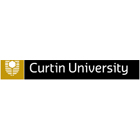Bachelor of Science (Psychology and Human Resource Management)
Bachelor of Science (Psychology and Human Resource Management)
This course provides a good basis in the scientific discipline of psychology alongside applications in human resource management professions. It equips you with highly marketable knowledge and skills that allow you to engage with a broad range of managers, professionals and consultants. You’ll graduate with the necessary skills to work…
Categories
COURSE DESCRIPTION
This course provides a good basis in the scientific discipline of psychology alongside applications in human resource management professions.
It equips you with highly marketable knowledge and skills that allow you to engage with a broad range of managers, professionals and consultants.
You’ll graduate with the necessary skills to work in human resource management, health and community services, employment and training, welfare agencies, and development both in government and private enterprise.
You’ll also be prepared to pursue graduate studies in either professional application or research.
To become a registered psychologist after graduating from this degree, you will need to complete a further year of psychology study and then two years of skills-based training.
What jobs can the Psychology and Human Resource Management lead to?
Human resources officer
Public relations officer
Recruitment consultant
and with further study
Registered psychologist
Endorsed psychologist
What you’ll learn
Apply psychological theory to evidence based practice and extend the boundaries of knowledge through research; discriminate between valid discipline knowledge and questionable esoteric theory and practice; select and apply theories, concepts and techniques to describe, understand, analyse and evaluate management issues and problems
Apply logical and rational processes to critically analyse problems and generate innovative solutions to psychological questions; think critically and creatively to generate solutions to management problems and apply logical and rational processes to make decisions
Access, evaluate and synthesise relevant information and evidence from a range of sources applicable to psychology; access, evaluate and synthesise information from multiple sources to make valid and supported judgments about management issues
Communicate effectively with individuals, groups and communities; communicate in ways appropriate to the management discipline for various audiences and contexts
Select and effectively use appropriate technologies relevant to psychological research and practice; use and apply technologies, recognising their advantages and limitations when applied to management
Demonstrate ability for self-directed learning and reflective practice; take responsibility for their own learning by demonstrating initiative in finding new information and actively participating in varied learning experiences
Demonstrate knowledge and understanding of international perspectives in psychology; think globally and consider management issues from a variety of perspectives
Demonstrate understanding and respect for human rights and cultural diversity; actively support the value of cultural diversity in improving business and professional practice
Independently and collaboratively apply professional skills in an ethical manner; demonstrate leadership, ethical practice and professional integrity when working within a team and independently
Professional recognition
This course is accredited by the Australian Psychology Accreditation Council (APAC). Upon graduating you will be eligible to apply for professional membership to the Australian HR Institute (AHRI). To be eligible for associate membership of the Australian Psychological Society you must complete an additional year of undergraduate psychology study.
REQUIREMENTS
Students from different countries should have qualifications equivalent to Australian Year 12 and a scaled mark of at least 50 in English, Literature, or English as an Additional Language or Dialect.
IELTS (International English Language Testing System) – Listening, Reading, Writing, and Speaking – 6.0; Overall band score 6.5; TOEFL Score: 79 (overall); Reading 13; Listening 13; Speaking 18; Writing 21; Pearson Test of English – Listening, Reading, Writing, and Speaking – 50; Overall band score 58; TOEFL (Test of English as a Foreign Language) and PBT (Paper Based Test) – 570 and 4.5 in TWE; C1 Advanced Formerly known as Cambridge English: Advanced (CAE) 176 with 169 in Reading, Writing, Listening and Speaking. C2 Proficiency Formerly known as Cambridge English: Proficiency (CPE) 190 with 176 in Reading, Writing, Listening and Speaking.
EDUCATIONAL INSTITUTION
Curtin University is Western Australia’s largest and most culturally diverse university with Australia’s third largest international student population. Around 60,000 students from more than 130 countries study a Curtin degree, at locations including Perth, Margaret River, Kalgoorlie, Sydney, Malaysia and Singapore. Our cultural diversity adds a rich and valuable dimension to the campus atmosphere, preparing all graduates to live and work effectively in an increasingly global environment. We offer a range of industry-aligned undergraduate and postgraduate courses in business, humanities, health, engineering and related sciences. We also have a long-standing focus on Aboriginal and Torres Strait Islander education and culture, supported by our Centre for Aboriginal Studies.Curtin is widely recognised for its practical research that is focused on solving timely, real-world problems. In recent years our research activity has grown significantly, driving our rapid rise up the international university rankings.As a university that never settles, we will continue to develop existing partnerships and establish new ones in areas relevant to our research and teaching.




